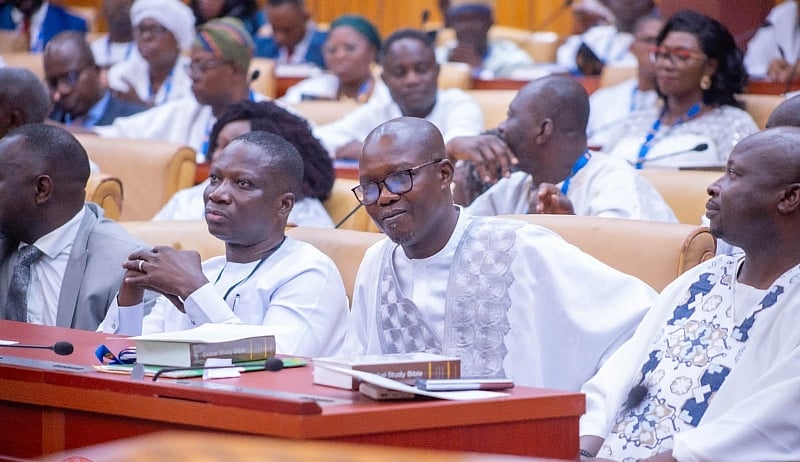Ghana’s Parliament, the legislative arm of government, has taken a crucial step in establishing its operational framework by approving the composition of its Appointments Committee. This pivotal body plays a vital role in the appointment process of key government officials, acting as a gatekeeper for ministerial and other significant positions. The committee’s primary function is to thoroughly vet nominees put forth by the President, ensuring their suitability and competence before recommending them to the full Parliament for final approval or rejection. This rigorous process is designed to uphold the principles of good governance, transparency, and accountability within the government. The committee’s recent formation marks a significant milestone in the legislative calendar, enabling Parliament to effectively exercise its oversight responsibilities and ensure the executive branch is staffed with qualified and capable individuals.
The Appointments Committee’s structure reflects the balance of power within Parliament, mirroring the proportional representation of political parties. The leadership of the committee is divided between the ruling majority and the opposition minority. Mr. Bernard Ahiafor, the First Deputy Speaker, will lead the committee as Chairperson, bringing his extensive parliamentary experience to bear on its proceedings. Mr. Emmanuel Armah-Kofi Buah, the Deputy Majority Leader, will support the Chairperson as Vice Chairperson, ensuring the smooth functioning of the committee’s operations. Representing the minority, Mr. Alexander Kwamena Afenyo-Markin, the Minority Leader, has been appointed as the Ranking Member, providing a critical perspective and ensuring balanced scrutiny of nominees. Madam Patricia Appiagyei, the Deputy Minority Leader, will serve as the Deputy Ranking Member, further strengthening the opposition’s voice within the committee. This balanced composition is crucial for ensuring fair and impartial assessments of all nominees, regardless of their political affiliations.
The composition of the Appointments Committee, as detailed by Majority Leader Dr. Cassiel Ato Baah Forson, adheres to a ratio of 183 to 88, reflecting the parliamentary seat distribution between the ruling party and the opposition. This proportional representation ensures that the committee’s decisions reflect the will of the electorate and promotes a sense of inclusivity in the appointment process. By mirroring the political landscape of Parliament, the committee’s structure enhances its legitimacy and reinforces public trust in the selection process for key government officials. The adherence to this ratio underscores Parliament’s commitment to upholding democratic principles and ensuring that all voices are heard and considered in the appointment process.
The Appointments Committee’s mandate encompasses a broad spectrum of appointments, extending beyond ministerial positions to other critical roles within the government. Its purview, as defined by the Constitution and relevant legislation, includes scrutinizing nominees for various high-level positions, ensuring that individuals appointed to these roles possess the necessary qualifications, experience, and integrity to serve the nation effectively. This wide-ranging responsibility underscores the committee’s significance in shaping the leadership of the government and ensuring the effectiveness of its various branches. By carefully vetting individuals for these crucial roles, the committee contributes to the overall stability and performance of the government.
The vetting process employed by the Appointments Committee involves a comprehensive assessment of each nominee’s background, qualifications, and suitability for the proposed position. This rigorous evaluation includes reviewing their professional experience, educational credentials, and public record. Nominees are also subjected to intense questioning by committee members, allowing for in-depth scrutiny of their policy positions, understanding of the responsibilities associated with the position, and overall readiness to serve. This thorough vetting process ensures that only the most qualified and suitable individuals are recommended for appointment, safeguarding the integrity and effectiveness of the government.
The approval of the Appointments Committee’s composition by Parliament represents a significant stride towards establishing a fully functional legislative body. With the committee now in place, Parliament can effectively fulfill its oversight responsibilities, ensuring a transparent and accountable government. The committee’s work is crucial not only for ensuring the selection of competent officials but also for fostering public trust in the government’s appointment process. By diligently scrutinizing nominees and recommending only those who meet the highest standards of integrity and competence, the Appointments Committee plays a vital role in upholding the principles of good governance and promoting the overall well-being of Ghana.














